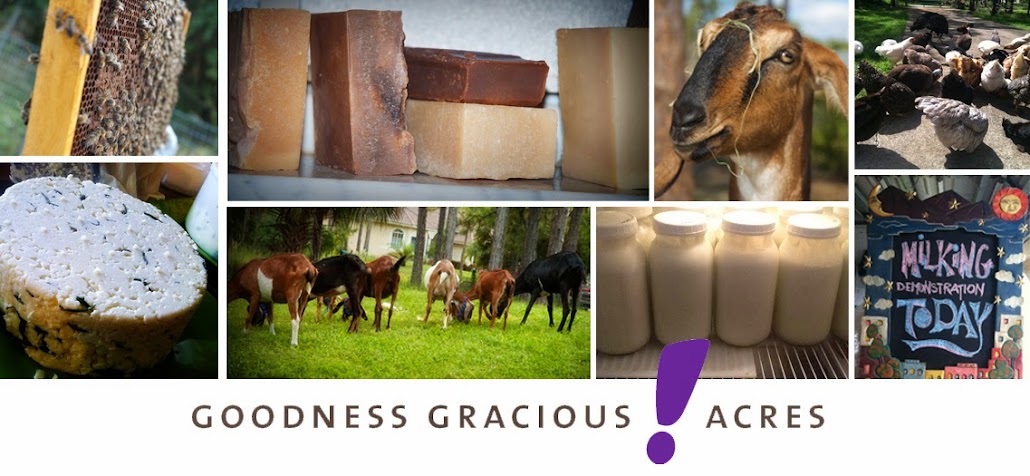Late lactation is just saying that the girls have been milking for about 9 months or longer. They milk generally 305 days, 10 months. You can push it. I do with some of the girls that look good. I sometimes can milk 12 months or more but generally their bodies know it, show it, and milk comes out accordingly. It's why I start off with so many and by the end of lactation I might only have a few milking. This year I started with 11 in milk. Today I'm milking just one. It's the eleventh month of lactation.
In late lactation they will also decrease in production. Goats don't start out at day one of milking and give the same amount till the end. They peak on a grand curve from day 1 to day 305. My girls peak at the 3 or 4th month mark in that timeline. Then they level out for a few months. Then start the decline. As well in that time, one might get sick and get pulled from lineup. One might have no desire to milk that year, i pull etc. They are just like us. Some have great years some don't. the curve average gets lower and lower.
Of course, they also peak and wane within the months as well. During times of stress, heat, estrus. And their ages are important. This year I was milking 5 first fresheners. (ah, what is that?) A first freshener is a young goat in her first year of giving birth and milking. It's like a 15 year old getting their learner's permit. They're not quite proficient, need lots of patience. Don't know the ropes. Don't expect much from them, but expect to spend more time on them. They can't compete with a seasoned pro.
This time of year is frustrating for me, my milk customers demand doesn't decrease, but the milk does. One of the things I've been trying to do is get only half pregnant for January, and then the other half for March, or even April. This way there will always be a sufficient supply of milk. The last two years haven't worked out that way. The weather, the goats, their ages all come into play and there is never a hard and fast rule to this.
The chart below helps me since I'm a visual thinker. The line (green) is just approximating from this years production. Brown is what I expect to see since they would kid out in warmer months and height of lactation would be at height of a Florida summer. Expectations are lower. I think it gives a good idea what a lactation curve is, how, when, etc. See how it plummets around October? November? this is my late lactation if they were bred in August and kidded out in January.


No comments:
Post a Comment
Howdy from Goodness Gracious. Please leave a comment. I do enjoy them. And try to respond to all who post. Thanks for visiting.